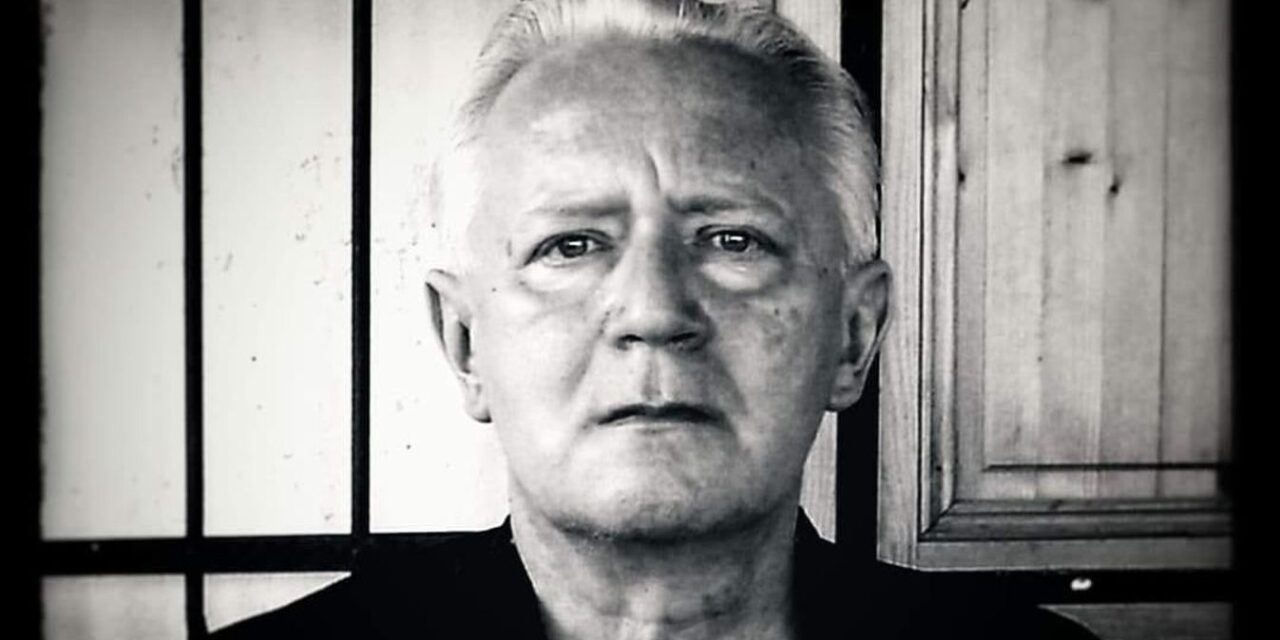Generations grew up on the lectures of András László, many of the actors and representatives of today's Hungarian right wing listened to and read him.
Philosopher and theologian András László died on April 5, in the eighty-third year of his life. A brief characterization should follow the meager words announcing the end of life's journey. However, in the case of András László, as with really large format people, this is by no means easy. Let's see what he says himself:
High principles are always worth representing and teaching, despite the fact that there are very few perspectives. It's not worth it, but rather mandatory. Let's do what we can do. As long as I live, I want to act in the name of truth.
This can be understood as ars poetica, characterized by a few sentences in his world life. András László, who studied Buddhist, Reformed and Catholic theology, and then earned a doctorate from the former, was already one of the prominent and extremely special personalities of the decades before the regime change. At the age of twenty, he was found guilty by the court of "inciting hatred against the people's democratic state order" and spent four months in prison. At a young age, he meets Béla Hamvas, whom he considers his father's good friend, and who once said of him:
little brahmin.
From the 1970s, he was a speaker at the Buddhist Mission, and after leaving there, he began his performance as a speaker in 1983, which essentially lasted until his death. After the regime change, he published regularly in many periodicals that became cult in the eyes of many, such as Radix, Ÿhagyomány, Hunnia, Arkhé, Tradíció yearbook, Pannon Front, Sacrum Imperium and North Crown. Several of his books will be published later:
His doctoral dissertation entitled The Light of Everything in Man, the volumes Traditionality and Concept of Life, Solum Ipsum, Tradition and Metaphysics, and Principles of Right-Wing.
With his activities, András László is, after Béla Hamvas, the founder of the circle also known as the traditional school in Hungary, and his influence in Hungary can be compared to the international influence of René Guénon or Julius Evola. Generations have grown up in his lectures, and many of the leading or background actors of today's Hungarian right have listened to and read him - whether they accept it today or not. The essence of his teaching was summed up by one of his close students, Róbert Horváth, in the foreword to the tribute volume written for his seventieth birthday:
"There are three main aspects to his life's work. On the one hand, worldview education in the age of people without a worldview - in such a way that the principles imparted are not just points that fit into some kind of invisible party membership book, but lead to a lively, continuous and in-depth outlook on life. On the other hand, it is an integral extracting of the basic principles of the various intellectual traditions - as the provision of principles (mostly summarized in the form of neologisms) to which countless traditional principles, phenomena and peculiarities can be traced back. Embracing these integral principles allows us to enter a wide spectrum of traditions. Thirdly, the attention directed to the highest possible states of being and consciousness communicated in the traditions."
Why these lectures had to take place in private apartments in the beginning, there were understandable reasons in the years before the system change - even more so, it needs an explanation why even after 1990, only the lecture halls of smaller associations and civil organizations opened in front of him instead of university chairs, nota bene large event halls. Róbert Horváth explains this by saying that today the importance of neither theology nor philosophy is raised as "a defining science that conveys the highest qualities, perspectives and possibilities of existence", while András László's every word and lecture was delivered in the spirit of "the traditional all crucial expressions of religions, denoting basic quality and basic reality, can and should be implemented".
These short texts about life, death, afterlife, marriage, art, politics are like a sip of spring water from my father's old tin bottle. There is no comparable book in Hungarian, perhaps it can only be compared to the best essays of Béla Hamvas.
The rest, as they say, is just literature.
I am not really interested in where András László is classified politically. If I remember correctly, he defined himself as an ultra-rightist from childhood. But what does this mean in today's public discourse, which is slowly becoming inferior to everything? Nothing in the world. According to András László, it means that there is a kind of order and hierarchy in the world, there is God, and man has the opportunity to - with the help of his attention, sensitivity, commitment and spiritual vigilance - restore this order within himself. And if he restores it in himself, he restores it in the world.
Obviously, some of his supporters and followers would immediately argue with this, that it is not accurate enough, or even wrong, that is not what he was talking about, that is not what he meant, this was not the essence of András László's life work. But I'm not interested in these possible comments either. For me, this was (and still is) the essence of everything that András László spoke and wrote about. The rest are matters of detail. If being ultra-right-wing means that people treat the existence of the supernatural world as a fact, and that this supernatural world most profoundly determines our existence, its meaning and purpose, then I can say nothing else: I am also ultra-right-wing. But that doesn't mean anything either. These are just words.
András László is dead, but in his case, I think it doesn't change anything. How many times have the trees shed their leaves in the garden and still live.
József Attila Prize-winning Hungarian poet
Apart from theology, his historical-political teachings cannot be considered mainstream today.
The opposite of democracy as a radically anti-traditional and anti-spiritual formation is not the equally anti-spiritual terrorist dictatorship, but the rule of the spirit. (Solum Ipsum, 468.)
In the part of Scientia sacra that András László called reflecting the purest traditional right-wing, Béla Hamvas writes: "In the modern age, the most that a king could say about himself was: I am the state. This is completely false. It is false because it is small and few. The king is more than the state, as much as God is more than the world. The king is the sacred person whose relationship with the state is what God has with the created world. Without a king, humanity is a "multitude", as Heraclitus says, and human life is a meaningless disturbance." It is no coincidence that he considered 1956 to be the most wonderful event in modern Hungarian history, and not even 1848 by chance. In the newspaper Északi Korona, the writer of these lines also encountered the thoughts of András László for the first time, about the nature of right-wing and left-wing revolutions, right around '56.
As he said in an interview with the Magyar Hüperión magazine:
"I am interested in many things, but of all the things I am most interested in theology."
And those who knew András László know exactly how true this is, that he was interested in literally all spiritual topics, from tradition, theology and astrology, to issues of Hungarian destiny or the arts, to seemingly trivial things like Papp Jancsi's jokes that could be used to cheer him up at any time, even in the most difficult moments of his illness, which he bore with dignity and spiritual awareness for more than a decade.
The adequate and legitimate way to ascend to heaven is symbolized by the Bible with Jacob's ladder: one can ascend to heaven only on the ladder descending from heaven. An inadequate and illegitimate way of doing the same is the story of the Tower of Babel: rising from the earth necessarily leads to collapse and confusion. (Solum Ipsum, 204)
We, his disciples and admirers left here in the earthly world, now think of him with gratitude and thanks in the knowledge that he got there on that particular ladder.
Dr. András László's public farewell will be held without ceremony on May 29, 2024 at 3 p.m. in the plot of the Fiumei út cemetery.
Source and featured image: Magyar Nemzet













